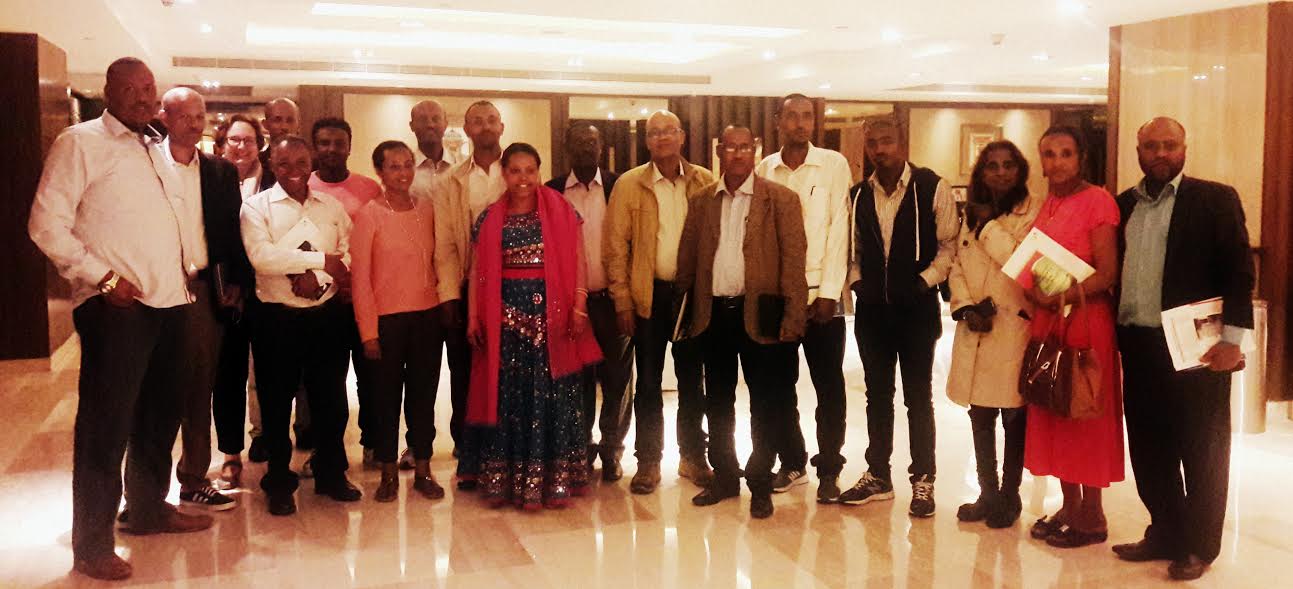New Delhi: Ministry of Education, Government of Ethiopia is currently visiting India in an effort to learn from the Indian education system and to gather prevailing best practices. With this aim, the 17-member delegation began its journey in India on February 13, 2017 and visited Jaipur and New Delhi to study the system at the grassroots level. Led by Dr. Jordene Hale, Chief of Party, READ M&E, the delegation also interacted with government officials from the Sarva Shiksha Abhiyan (SSA), NCERT, Mid-Day Meal Programme, as well as the recipients of the Gandhi Fellowship.
IPE Global, an international development consulting group, organised the visit and stakeholder engagements for the delegation. Over the last 18 years, IPE Global has been working closely with the governments, multilateral and bilateral agencies providing expert technical assistance and solutions for equitable development and sustainable growth in developing countries.
Education challenges in Ethiopia
Ethiopia’s growing youth population—the second largest in Africa—presents a huge challenge to the education system. An estimated three million primary school-aged children and more than 20 million youth are currently outside of the formal school system. Of out-of-school youth, a large proportion have had no education at all (84 percent in rural areas and 33 percent in urban areas). Urban youth unemployment is 50 percent and this figure is even higher in rural areas.
The Ethiopian education system has been implemented under a mother tongue language policy, the goals of which are to improve literacy rates and academic achievement, as well as to enhance appreciation of local languages and cultures.
Reading for Ethiopia’s Achievement Developed (READ) programme
The delegation is visiting as part of United States Agency for International Development’s (USAID) Reading for Ethiopia’s Achievement Developed Monitoring and Evaluation (READ M&E) project), supported activity implemented by the American Institutes for Research (AIR). READ M&E focuses on monitoring and evaluation of early grade reading and writing as well as the M&E needs of the overall USAID READ program. The READ programs seek to improve the quality of reading and writing education for children in early grades for enabling greater learning in upper grades, and their work is aligned with the efforts of the Ministry of Education, regional state education bureaus (RSEBs), colleges of teacher education (CTEs), and other key development partners.
Key Learnings from the visit
Increased involvement of the government in ensuring and promoting Education for All in India and national level programmes
Education Management Information System (EMIS) in India and the need for a central body which is responsible for capacity building, research and planning in the education sector, similar to NUEPA in India
The scope and need for private sector participation and collaboration with the government (PPP models)
Importance of an integrated community which fosters innovative teaching-learning activities between teachers and students
Transition to English language via a graduated three-language formula where the first language is the regional dialect, the second language is the official language of the union/state and the third language as English
Ensuring quality education through recruitment of teachers via Teaching Eligibility Test (TET)
Involvement of local communities and teachers for implementing school feeding programmes like the mid-day meal programme

